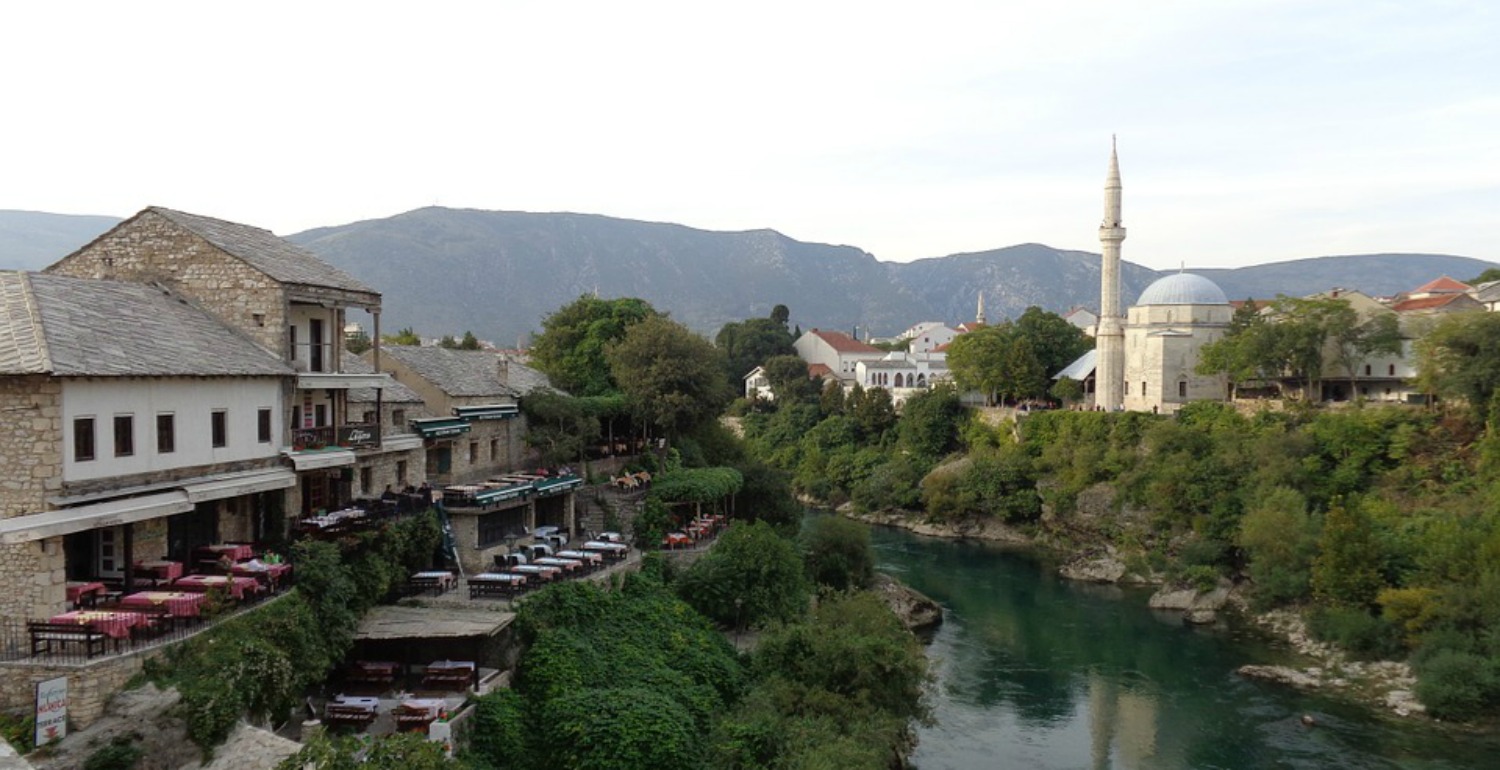This hearing focused on the ongoing conflict in the former Yugoslavia and the international community’s commitment to prosecuting those guilty of war crimes and providing humanitarian relief. In particular, the hearing looked into systemic rape and forced impregnation in the former Yugoslavia. The hearing also largely focused on what measures the U.S. should adopt to assist communities and women affected by gender violence from the conflict. In addition, the Commissioners and witnesses discussed measures to prosecute individuals guilty of war crimes and how to address the refugee crisis.
Members
Hon. Steny Hoyer
Co-Chairman
Commission on Security and Cooperation in Europe
Hon. Christopher Smith
Commissioner
Commission on Security and Cooperation in Europe
Hon. Louise Slaughter
Member of Congress
House of Representatives
Hon. Rosa DeLauro
Member of Congress
House of Representatives
Witnesses
Bianca Jagger
Human Rights Worker
Equality Now
Feryal Gharahi
Vice Chair of the Board of Directors
Equality Now
Relevant Issues
Relevant Countries
Leadership

Hamas’ Hostages, Putin’s Prisoners, and Freeing Inte...
Oct 25, 2023The practice of seizing hostages and political prisoners, as well as actively terrorizing civilians is a constant displayed by Hamas in Israel and Russia’s war against Ukraine. To highlight issues related to the United States’ strategy to free hostages and political prisoners, last year the Commission’s Ranking Member Congressman Steve Cohen and Chairman Joe Wilson […]

Helsinki Commission Advances Human Rights, Demands f...
Oct 19, 2023By Shannon Simrell, Senior Policy Advisor Between October 2-13, 11 Helsinki Commission staff joined approximately 1,400 representatives of OSCE participating States (pS) and civil society representatives in Warsaw, Poland in an annual review of the human rights records of OSCE States. U.S. leadership highlighted demands for accountability from Russia and Belarus for their human rights […]

Hearing: Has the United Nations Failed Ukraine and t...
Sep 27, 2023Wednesday, September 27, 2023 2:00 pm to 3:30 p.m. Rayburn House Office Building Room 2200 Stream live here: https://www.youtube.com/watch?v=RrBXYsQA0Qk In 2022, Russia launched a full-scale invasion of Ukraine and the largest land war in Europe since World War II. In its wake, experts and leaders like President Zelenskyy raise serious questions whether a United Nations […]

Supporting A Democratic and Secure Moldova
Jul 12, 2023In recent years, Moldova has made notable steps to improve its democratic institutions and combat corruption. President Maia Sandu and her Party of Action and Solidarity (PAS) have spearheaded wide-ranging reforms and backed a number of high-profile anti-corruption cases. Moldova has also made strides toward greater integration with the European Union (EU). In 2022, the […]
Hearing: Supporting a Democratic and Secure Moldova
Jul 06, 2023Wednesday, July 12, 2023 2:00 pm Cannon House Office Building, Room 210 Live stream: https://www.youtube.com/watch?v=jm-R6rfQbCo In recent years, Moldova has enacted numerous reforms under current Moldovan President Maia Sandu to strengthen its democratic institutions, combat corruption and kleptocracy, and integrate with the European Union. In 2022, the European Union granted Moldova “Candidate” status in its […]

CHAIRMAN WILSON LEADS BIPARTISAN DELEGATION TO GERMA...
May 12, 2023WASHINGTON—From May 1st to May 7th, Helsinki Commission Chairman Rep. Joe Wilson (SC-02) led a bipartisan U.S. delegation to Germany, Poland, and Ukraine to coordinate support for Ukraine and examine current wartime challenges. The delegation consulted with high-ranking government officials and civil society actors regarding ongoing military and humanitarian responses to the Russian invasion. Chairman […]
Helsinki Commissioners re-introduce Ukrainian Genoci...
Feb 24, 2023Today, Helsinki Commission Ranking Member Rep. Steve Cohen (TN-09), Chairman Rep. Joe Wilson (SC-02), Commissioners Rep. Marc Veasey (TX-33), Rep. Richard Hudson (NC-09), Rep. Emmanuel Cleaver (MO-05) along with Reps. Sheila Jackson Lee (TX-18), Lloyd Doggett (TX-37), Bill Keating (MA-09), Maria Elvira Salazar (FL-27), Marcy Kaptur (OH-09), Mike Quigley (IL-05), Bill Pascrell (NJ-09), André Carson (IN-07), Brendan Boyle (PA-02), introduced a […]
Steadfast Support for Ukraine: United States Delegat...
Feb 23, 2023WASHINGTON – Today, the United States Delegation to the Parliamentary Assembly of the Organization for Security and Cooperation in Europe (OSCE PA), led by Senator Ben Cardin (MD), met with Mykyta Poturaiev, Ukraine’s Head of Delegation and additional representatives of the Ukrainian Rada in Vienna, Austria, along with the Heads of Delegation of Canada, Estonia, […]
Helsinki Commissioners Announce Re-Introduction of H...
Jan 25, 2023Today, Helsinki Commissioners Steve Cohen, Joe Wilson, Marc Veasey, Richard Hudson, Ruben Gallego and Brian Fitzpatrick along with Representatives Ted Lieu, Maria Salazar and Marcy Kaptur, re-introduced the Holding Accountable Russian Mercenaries (HARM) Act in the House of Representatives, bipartisan legislation that would require the Secretary of State to designate the Russian-based mercenary Wagner Group as […]

OSCE’s 2022 Ministerial Council in Lodz: Russia Isol...
Dec 09, 2022By Janice Helwig, Senior Policy Advisor, Demitra Pappas, Senior Advisor Department of State, Shannon Simrell, Representative of the Helsinki Commission to the U.S. Mission to OSCE Foreign Ministers and senior officials from the 57 participating States and 11 Asian and Mediterranean partners of the Organization for Security and Cooperation in Europe (OSCE) convened the OSCE […]
Helsinki Commission Announces Hearing on Crowdsourci...
Dec 07, 2022WATCH LIVE […]
Helsinki Commission Briefing on Russia’s Genoc...
Nov 14, 2022Helsinki Commission Co-Chairman Rep Steve Cohen joined a panel of four experts moderated by Helsinki Commission Senior Policy Advisor Michael Cecire to discuss Russia’s genocide in Ukraine. The four panelists included Dr. Timothy Snyder, Richard C. Levin Professor of History at Yale University; Ms. Maria Kurinna, Ukrainian human rights activist and international advocacy advisor at […]


